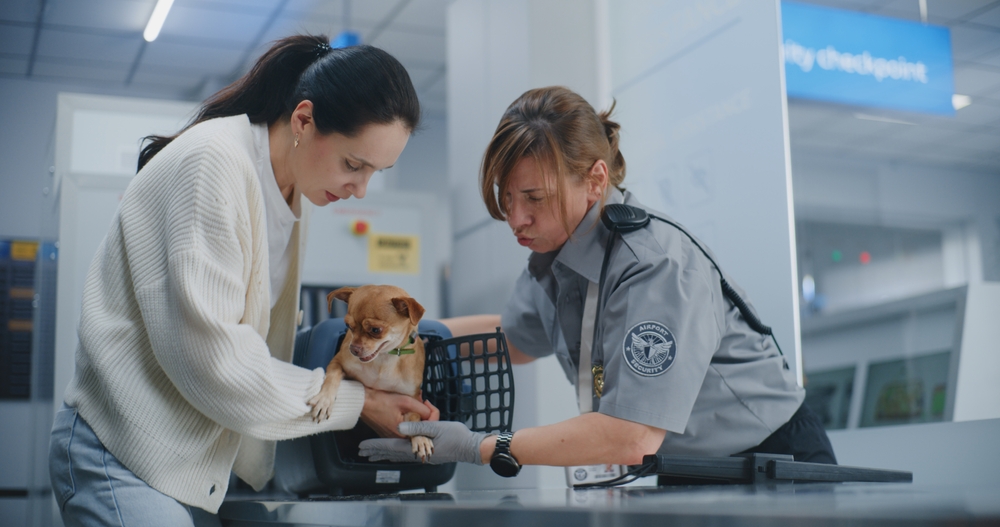Delta’s updated policy outlines strict rules traveling with Emotional Support Animals, including documentation, species restrictions, and booking guidelines.
Understanding Delta’s Emotional Support Animal Policy

Delta Air Lines, like many other carriers, has specific guidelines concerning emotional support animals (ESAs). Navigating these policies can be crucial for individuals who rely on ESAs for mental and emotional well-being during travel. The proliferation of ESAs has led to varying regulations across airlines, driven by the need to balance the needs of passengers and safety protocols.
Background on Emotional Support Animals
Emotional support animals provide therapeutic benefits to individuals with mental or emotional disabilities. Unlike service animals, ESAs do not require specialized training. They are intended to offer companionship and relief from symptoms. The distinction between service animals and ESAs often drives regulatory differences in how they are accommodated across sectors, including air travel.
Delta’s Policy Overview
Delta requires ESA documentation reflecting the passenger’s need for the animal. The airline was among the industry leaders implementing stricter measures post-controversial incidents. Documents often must include a letter from a licensed mental health professional. This letter should confirm the passenger’s condition and necessity of the animal for travel.
Documentation includes verification of ESA’s health and vaccination records. Delta mandates submission of these documents at least 48 hours before departure through their website or customer service. This timeframe allows the airline to verify documents and process approvals accordingly.
Breed and Species Restrictions
Delta restricts certain breeds and species from being accepted as ESAs. Popularity of unconventional animals as ESAs led Delta to limit accepted species to cats and dogs. The airline also bans pit bull type dogs, citing safety concerns. These breed restrictions have incited debate among animal advocacy groups and passengers relying on these breeds.
Travel Preparations and Considerations
Planning ahead is crucial when traveling with an ESA on Delta. This includes ensuring the animal is well-behaved and comfortable in public settings, as passengers are responsible for their ESA’s actions. Delta reserves the right to deny boarding if the animal exhibits aggressive behavior. Preparing your ESA for airport procedures with mock drills can mitigate stress during travel days.
Checking seat assignments is another essential task. Delta’s policy allows ESAs to be seated in a passenger’s lap or the floor space of a seat. Bulkhead seats provide more space and may offer a more comfortable experience. Communicating seating needs with Delta staff at booking can help address comfort and accessibility.
Legal and Ethical Considerations
The legal landscape concerning ESAs in air travel reflects wider societal debates on disabilities and accommodations. The Air Carrier Access Act (ACAA) governs ESA policies. However, amendments have allowed airlines more discretion, especially concerning species and safety. Delta’s policy aligns with permitted flexibilities under this Act, emphasizing safety and comfort for all passengers.
Ethically, passengers using ESAs must consider the animal’s well-being and not just their own. Travel can be stressful for animals, and not all domestic animals are suited for air travel. Assessing an animal’s temperament and checking with a vet is advisable before planning your journey.
Delta’s Efforts and Public Reaction
Since implementing strict ESA regulations, Delta continues to update policies based on feedback and new regulations, ensuring policies reflect both industry standards and public needs. Some passengers appreciate the clarity and increased safety, while others feel the restrictions limit their right to necessary accommodations.
Public reactions to Delta’s ESA policy illustrate broader societal discussions about access versus safety in confined spaces. Such discussions influence not only immediate policy but also how public perceptions shape long-term regulations regarding ESAs.
Staying Informed
For ongoing or future travel needs, staying informed about Delta’s ESA policy changes is vital. Checking Delta’s official communications or partners’ travel blogs can offer updated insights. Additionally, engaging with Delta’s customer service provides direct information and clarifications.





